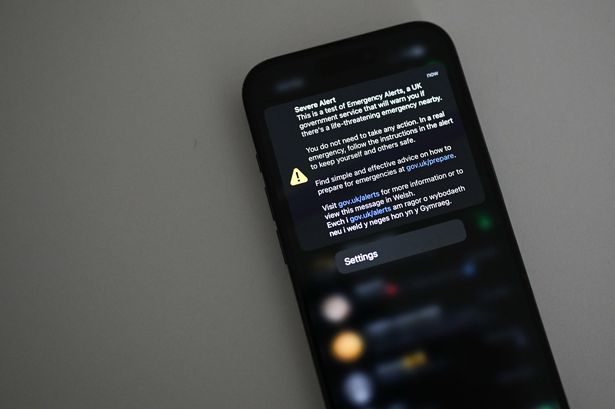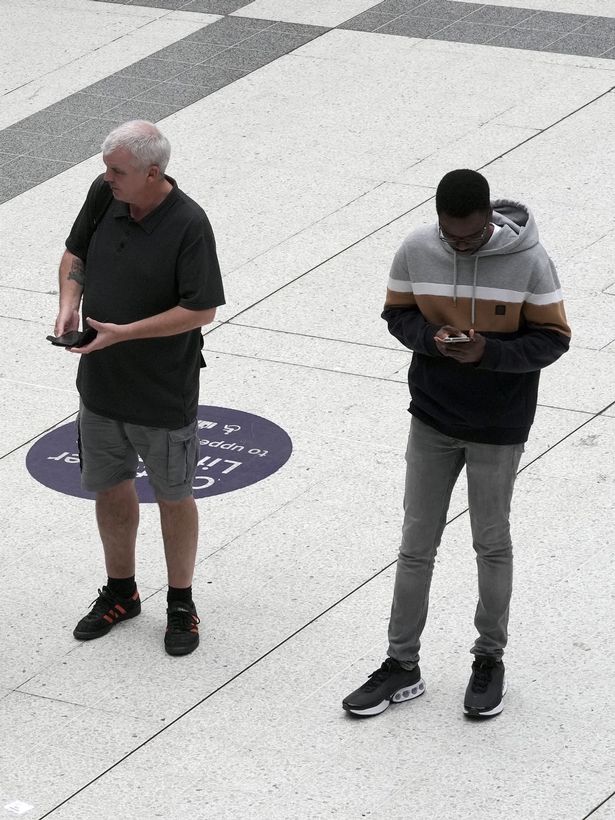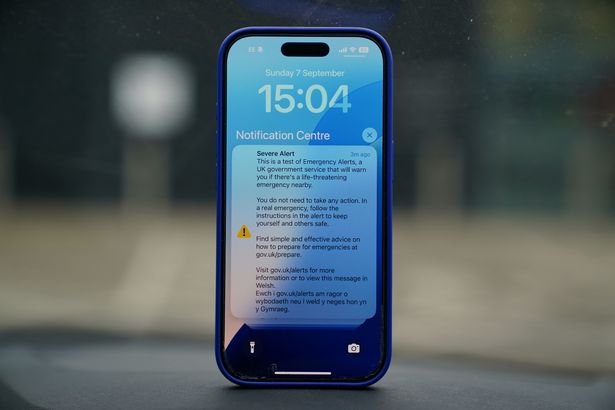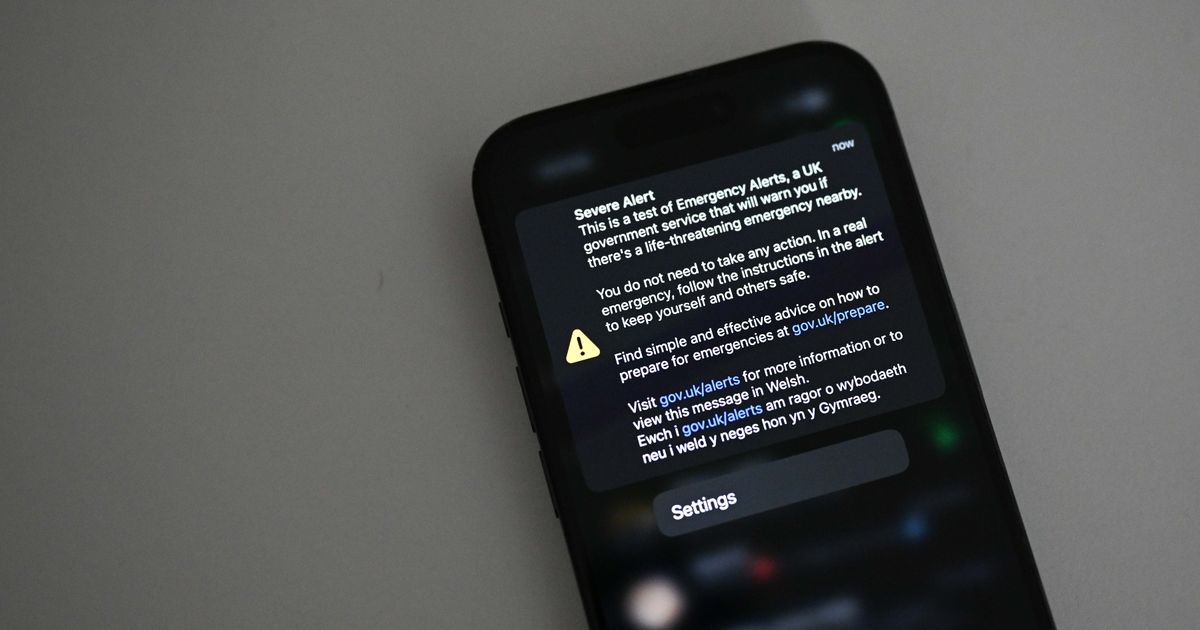The alert was sent to phones across the UK on Sunday afternoon The emergency alert as seen on phone screens(Image: Anadolu via Getty Images)
The emergency alert as seen on phone screens(Image: Anadolu via Getty Images)
Millions of people across the country received an Emergency alert as part of a UK-wide test this afternoon (Sunday, September 7). The ten second alert was tested by the government for the second time following a previous alert in 2023.
The alert that came with a message was sent to all mobile phones connected to a 4G or 5G network and caused phones to vibrate and emit a siren that lasted for ten seconds.
This afternoon, the Manchester Evening News was in the city centre to speak to people moments after the alarm had gone off to get their thoughts.
Never miss a story with the MEN’s daily Catch Up newsletter – get it in your inbox by signing up here
One of those people was 55-year-old, Ewan McGregor – not the actor of Star Wars fame. He said that while the alert startled him, he could see its benefits.
“I completely forgot about it,” he told the M.E.N. “I looked down at my phone and I saw that message, it was a bit scary.
“I know that there are some people who have conspiracies about it, but it’s for the greater good.
“Especially in a place like Manchester, with things like the arena bombings. Anything could happen.”
 People look at their mobile phone in London Liverpool Street station(Image: PA)
People look at their mobile phone in London Liverpool Street station(Image: PA)
Ana Ramos, who was working when her phone went off said: “I thought it was the apocalypse! I was working and could hear other people’s phones going off, but I was more focused on mine.
“I didn’t know anything about today’s test, so it was a bit scary. I’m not happy or unhappy that the government can send a message to all our phones like that. I think it’s useful, just a little scary.”
Kieran, who chose not to give his second name, was not a fan of the alert.
“I don’t think they should have done it,” he said.
“I don’t think it was needed. They’ve shown that they’ve done it already, so why do it again?
“I think it was a way for the government to say that they can get to you, in any way. It just makes people scared and scared to live their lives.
“I can see the good things about it, but there are other ways to get a message out there.”
 A mobile phone sounds with an alarm during a national emergency alert (Image: PA)
A mobile phone sounds with an alarm during a national emergency alert (Image: PA)
Anca Birse, 39, said: “I remember it from the first time they did it. It’s impressive but I haven’t thought much of it.
“Today I just saw it, swiped it away and it stopped. I think it’s good if it helps more people aware of what is going on.
“It could be used for so many things, an earthquake, attack, weather problems. If people need to be safe, then they need to be safe.”
Prime Minister Sir Keir Starmer issued a statement on social media following the emergency alert test, calling it an “important step” for keeping people safe during national emergencies.
On X, formerly known as Twitter, he wrote: “Tens of millions of phones successfully sounded across the country during today’s Emergency Alert test. This is an important step in keeping people safe during national emergencies.
“The government aims to test the system regularly to make sure it works optimally and familiarise the public with the alerts.”
The test alert said: “This is a test of Emergency Alerts, a UK government service that will warn you if there’s a life-threatening emergency nearby.
“You do not need to take any action. In a real emergency, follow the instructions in the alert to keep yourself and others safe.
Join the Manchester Evening News WhatsApp group HERE
“Find simple and effective advice on how to prepare for emergencies at gov.uk/prepare.
“Visit gov.uk/alerts for more information or to view this message in Welsh. Ewch i gov.uk/alerts am ragor o wybodaeth neu i weld y neges hon yn y Gymraeg.”
The system has been used in emergencies already, when 4.5 million people in Scotland and Northern Ireland received an alert warning of life-threatening conditions due to Storm Éowyn in January.
It was also sent to 10,000 people in Plymouth after an unexploded WWII bomb was discovered.
